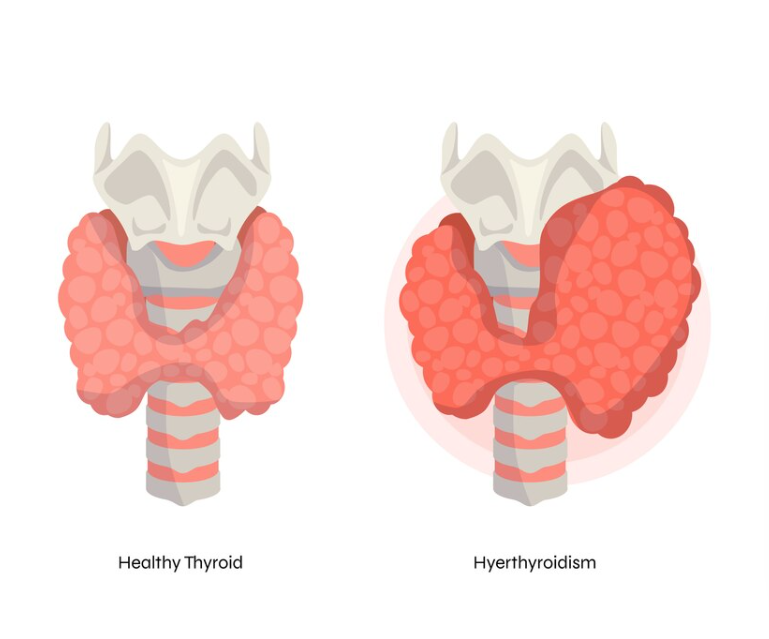
The Role of Hormones in Hyperthyroidism vs. Hypothyroidism: Understanding the Differences
Hyperthyroidism vs Hypothyroidism: Hormonal Differences
Introduction
Hyperthyroidism and hypothyroidism are thyroid disorders that affect hormone levels. These conditions have opposite effects on the body. Let’s explore their differences, focusing on hormones.
Understanding Hyperthyroidism and Hypothyroidism
- Hyperthyroidism occurs when the thyroid produces too much hormone. This speeds up metabolism, causing symptoms like weight loss, rapid heartbeat, and anxiety.
- Hypothyroidism happens when the thyroid produces too little hormone. This slows down metabolism, leading to weight gain, fatigue, and depression.
Role of Hormones
Thyroid hormones, T3 (triiodothyronine) and T4 (thyroxine), regulate metabolism and energy.
- In hyperthyroidism, excess T3 and T4 hormones speed up the body’s processes, increasing heart rate and energy consumption.
- In hypothyroidism, insufficient production of T3 and T4 results in sluggish metabolic functions. The body’s processes slow down, leading to symptoms such as fatigue and weight gain.
Symptoms
- Hyperthyroidism symptoms: weight loss, rapid heartbeat, nervousness, sweating, and heat intolerance. Patients may also experience tremors, irritability, and difficulty sleeping.
- Hypothyroidism symptoms: weight gain, fatigue, sluggishness, dry skin, hair loss, cold intolerance, constipation, and depression. Additionally, some people may experience hoarseness or joint pain.
buy advair rotahaler online https://bristolrehabclinic.ca/wp-content/uploads/2023/04/png/advair-rotahaler.html no prescription pharmacy
Diagnosis and Treatment
To diagnose these conditions, doctors perform blood tests to check thyroid hormone levels.
- Hyperthyroidism may be treated with medications that block thyroid hormone production or radioactive iodine therapy, which destroys part of the thyroid gland. In severe cases, surgery may be necessary.
- Hypothyroidism is usually treated with hormone replacement therapy. Synthetic thyroid hormones, such as levothyroxine, are used to restore normal hormone levels. Treatment often involves regular monitoring to ensure optimal hormone balance.
Additional Considerations
While both conditions impact thyroid function, lifestyle changes also play a role in management. Diet, exercise, and stress management can aid in the treatment process.
In addition, many individuals with thyroid disorders find it helpful to work with a healthcare provider to develop a long-term plan for managing their condition.
Conclusion
Understanding the differences between hyperthyroidism and hypothyroidism is essential for effective treatment. Knowing the role of hormones helps manage these thyroid disorders and improve overall health and well-being. Working closely with a healthcare provider ensures that individuals with these conditions receive the appropriate treatment and support.
To seek medical advice, always consult a Doctor. Here are our recommended experts. Click Here
To read more on Hyperthyroidism. Click Here

